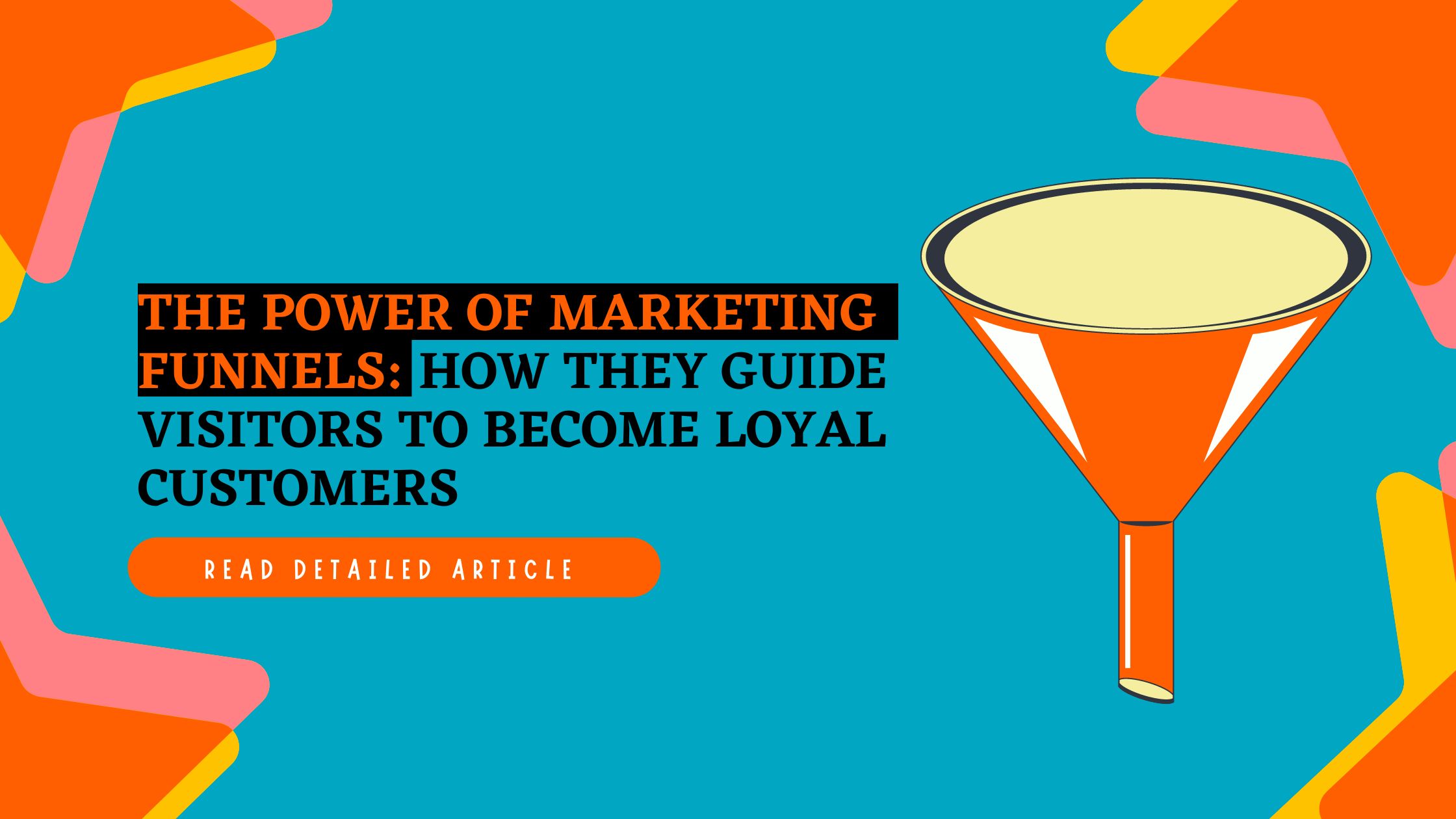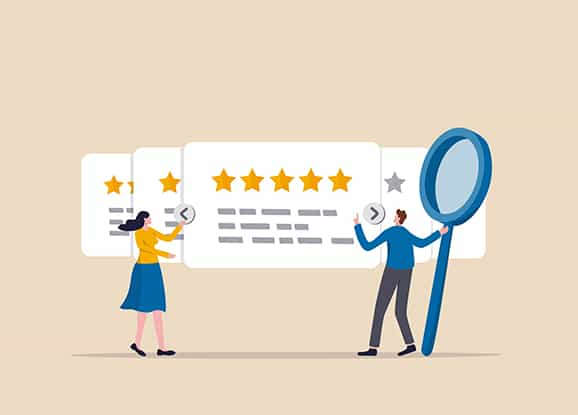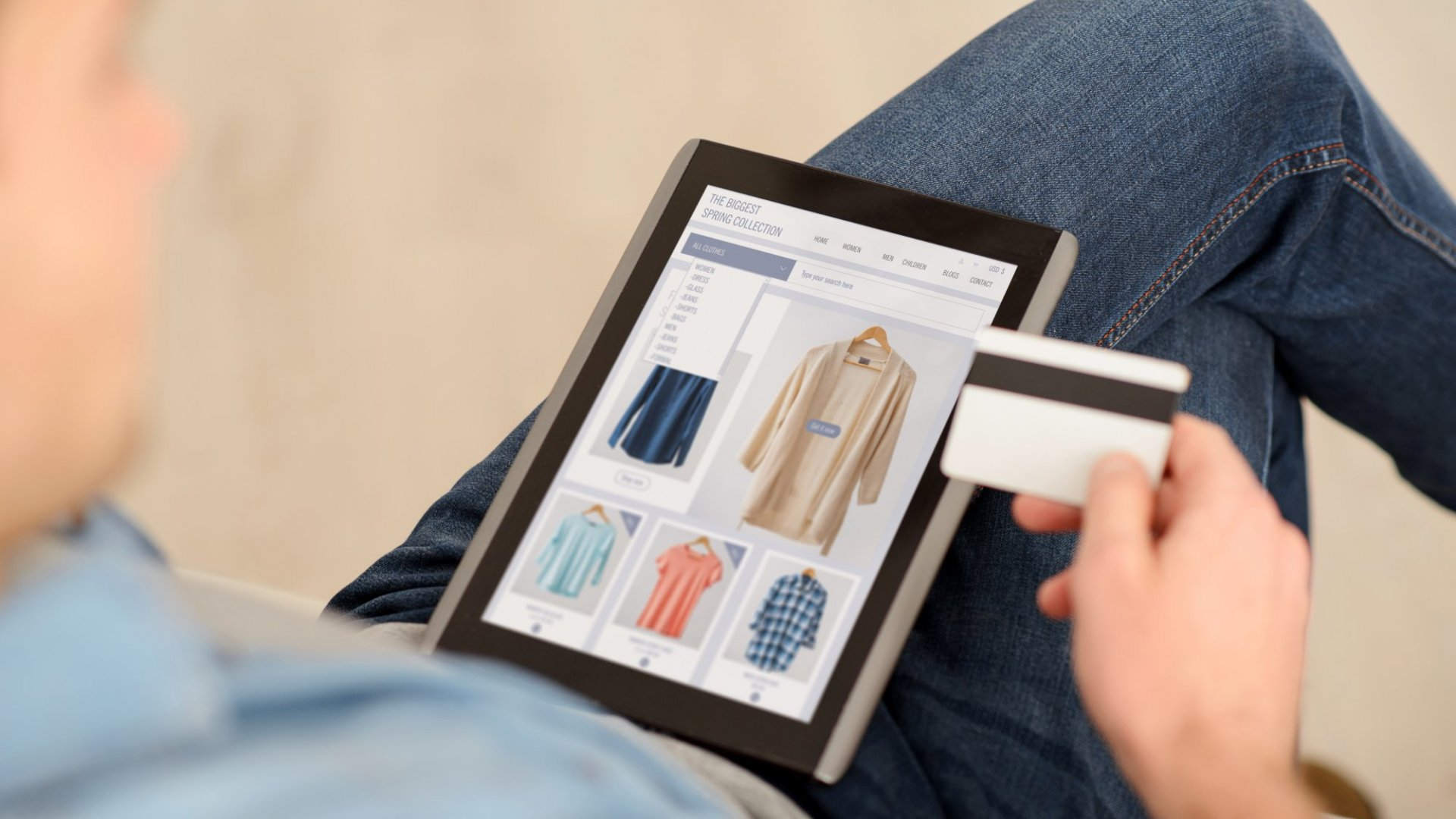- Get link
- X
- Other Apps
- Get link
- X
- Other Apps
Have you ever wondered how some websites are able to effortlessly convert visitors into loyal customers?
The answer lies in the carefully crafted and optimized marketing funnel. A marketing funnel is a series of steps that guides potential customers through the buyer's journey, from being a mere visitor to becoming a paying customer.
In this blog, we will explore the various stages of a marketing funnel and how it can help increase conversions and revenue for your business. So, let's dive in and discover the power of marketing funnels!
What is a Marketing Funnel and Why It's Important To Make One For Your Website?
A marketing funnel is a visual representation of the customer journey from the moment they become aware of your brand to the point of making a purchase. It's a series of stages that potential customers go through before making a purchase decision. The funnel typically consists of four stages: Awareness, Interest, Decision, and Action (AIDA).
The Awareness stage is when a potential customer becomes aware of your brand, product, or service. They may have come across your website through social media, search engines, or other channels.
The Interest stage is when the potential customer shows interest in your product or service. They may have visited your website, read your blog posts, or watching your videos.
The Decision stage is when the potential customer is considering making a purchase. They may have added items to their cart, requested a quote, or filled out a form.
The Action stage is when the potential customer makes a purchase, becoming a customer.
It's important to create a marketing funnel for your website because it helps you understand the journey that potential customers take before making a purchase. By mapping out the different stages of the funnel, you can identify where potential customers may be dropping off and optimize those areas to increase conversions.
A marketing funnel also helps you create targeted messaging and content for each stage of the funnel, increasing the likelihood of converting potential customers into paying customers. Overall, creating a marketing funnel is an essential step in driving conversions and increasing revenue for your business.
The role of the Marketing Funnel in the journey of a buyer from Being a visitor to a Customer.
The marketing funnel plays a crucial role in guiding a potential buyer from being a visitor to becoming a customer. It's a framework that businesses use to understand the different stages of the buyer's journey and create targeted messaging and content for each stage.
At the top of the funnel is the Awareness stage: where potential buyers become aware of your brand or product. This is where you can create content that educates and informs potential buyers about your brand or product. This can include blog posts, social media posts, and other types of content that introduce your brand or product to potential buyers.
An example of the Awareness stage in the marketing funnel could be a customer who is searching for a new pair of running shoes. They may search for "best running shoes for women" on Google, which would bring up a list of results, including your blog post that provides information about the top running shoes for women. This customer is now aware of your brand and product, and they may click on your blog post to read more.
Another example could be a customer who is scrolling through their social media feed and sees a sponsored post about a new skincare product. They may click on the post to learn more about the product and become aware of your brand and product. In both examples, the customer is in the Awareness stage of the marketing funnel. They have become aware of your brand or product and are interested in learning more.
At this stage, businesses can create content and messaging that educates and informs potential customers about their brand or product, building trust and establishing their brand as an authority in their industry.
Next is the Interest stage: where potential buyers show an interest in your product or service. This is where you can provide more in-depth information about your product or service, such as product demos or webinars. By providing valuable information, you can build trust and establish your brand as an authority in your industry.
An example of the Interest stage in the marketing funnel could be a customer who is interested in purchasing a new laptop. They may have visited your website and browsed through your laptop products. They may have also read reviews and compare prices with other brands.
Another example could be a customer who has engaged with your brand on social media. They may have liked your posts or shared them with their friends, indicating that they are interested in your brand and what you have to offer. In both examples, the customer is in the Interest stage of the marketing funnel. They have shown interest in your brand or product and are actively seeking more information.
At this stage, businesses can provide more in-depth information about their product or service, such as product demos or webinars. By providing valuable information, businesses can build trust and establish their brand as an authority in their industry. This can help potential customers move to the next stage of the funnel and ultimately make a purchase.
The Decision stage: is when potential buyers are considering making a purchase. This is where you can offer incentives, such as discounts or free trials, to encourage potential buyers to take action. You can also provide product comparisons or customer testimonials to help potential buyers make informed decisions.
An example of the Decision stage in the marketing funnel could be a customer who has narrowed down their options for purchasing a new laptop. They may have read reviews, compared prices, and evaluated the features of different laptops. At this stage, the customer is considering which laptop is the best fit for their needs and budget.
Another example could be a customer who is considering purchasing a subscription to an online streaming service. They may have compared the pricing and features of different streaming services and are evaluating which service will provide the best value for their money.
In both examples, the customer is in the Decision stage of the marketing funnel. They are actively considering their options and weighing the pros and cons of each choice.
At this stage, businesses can provide product comparisons, customer testimonials, or offer incentives, such as discounts or free trials, to encourage potential customers to take action and make a purchase. This can help customers move to the next stage of the funnel and become loyal customers.
Finally, at the bottom of the funnel is the Action stage: where potential buyers become customers. This is where you can provide a seamless checkout process and offer excellent customer support to ensure a positive customer experience.
An example of the Action stage in the marketing funnel could be a customer who has decided to purchase a laptop after evaluating their options. They may add the chosen laptop to their cart and proceed to checkout to complete the purchase.
Another example could be a customer who has decided to subscribe to a streaming service after evaluating their options. They may enter their payment information and confirm the subscription. In both examples, the customer is in the Action stage of the marketing funnel. They have taken action and made a purchase, becoming a customer of the business.
At this stage, businesses can provide excellent customer services, such as fast shipping or a user-friendly interface, to ensure customer satisfaction and encourage repeat purchases. This can help turn first-time customers into loyal customers, leading to increased revenue and growth for the business.
Including a marketing funnel in a content strategy can provide several benefits for businesses, including:
1. Improved targeting: A marketing funnel can help businesses understand the needs and interests of their target audience at each stage of the buying journey. This allows businesses to create targeted and relevant content that meets the specific needs of their audience.
2. Increased engagement: By creating content that addresses the needs and interests of the audience at each stage of the funnel, businesses can increase engagement and keep the audience interested in their brand.
3. Higher conversion rates: By providing valuable and relevant content throughout the funnel, businesses can build trust with their audience and increase the likelihood of conversion.
4. More efficient use of resources: By mapping out the funnel and identifying the types of content needed at each stage, businesses can make more efficient use of their resources by focusing on creating the right content for the right audience at the right time.
5. Clearer measurement and optimization: A marketing funnel provides a clear structure for measuring the effectiveness of content at each stage and optimizing it for better performance. This helps businesses make data-driven decisions and improve their content strategy over time.
Overall, incorporating a marketing funnel into a content strategy can help businesses create more targeted, engaging, and effective content that drives conversions and achieves business objectives. It is important to map out the funnel carefully and tailor the content to the needs and interests of the target audience at each stage to maximize its impact.
In conclusion, marketing funnels are a powerful tool that can guide visitors to become loyal customers. By understanding the different stages of the funnel - Awareness, Interest, Decision, and Action - businesses can create targeted and effective marketing strategies that cater to the specific needs and interests of potential customers.
Marketing funnels not only help businesses acquire new customers but also retain them. By providing excellent customer service, nurturing customer relationships, and providing value-added services, businesses can turn first-time customers into loyal ones.
This can lead to increased customer lifetime value and a more stable and profitable business. In today's highly competitive marketplace, it's more important than ever for businesses to leverage the power of marketing funnels to reach their target audience and drive sales. By investing time and resources into creating a well-designed and effective marketing funnel, businesses can achieve long-term success and growth.
Save & Share This Guide For Anytime Access.
Customer Marketing
Customer Relationship Marketing
customer retention
marketing funnel
Sales and marketing
website marketing
- Get link
- X
- Other Apps







Comments
Post a Comment